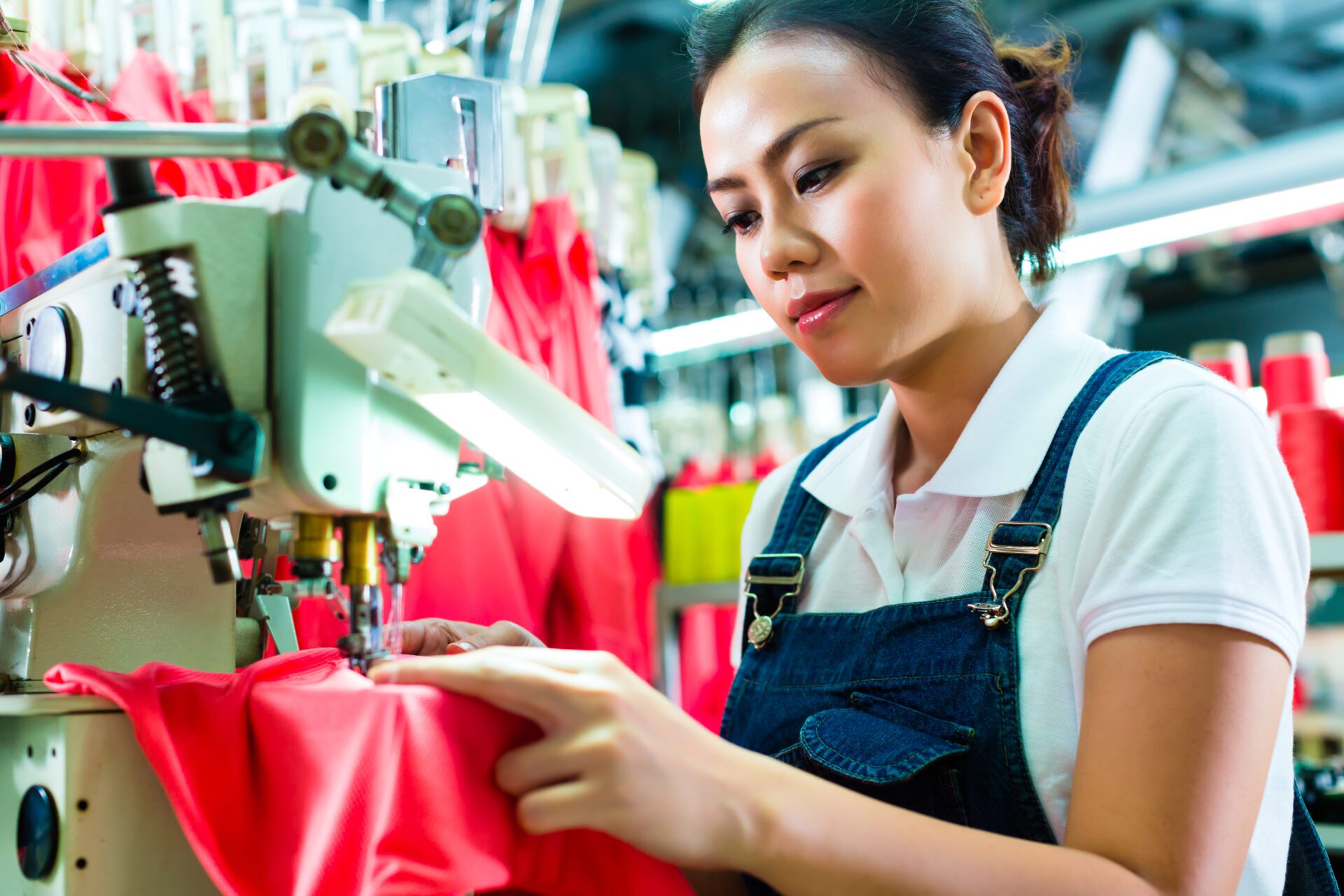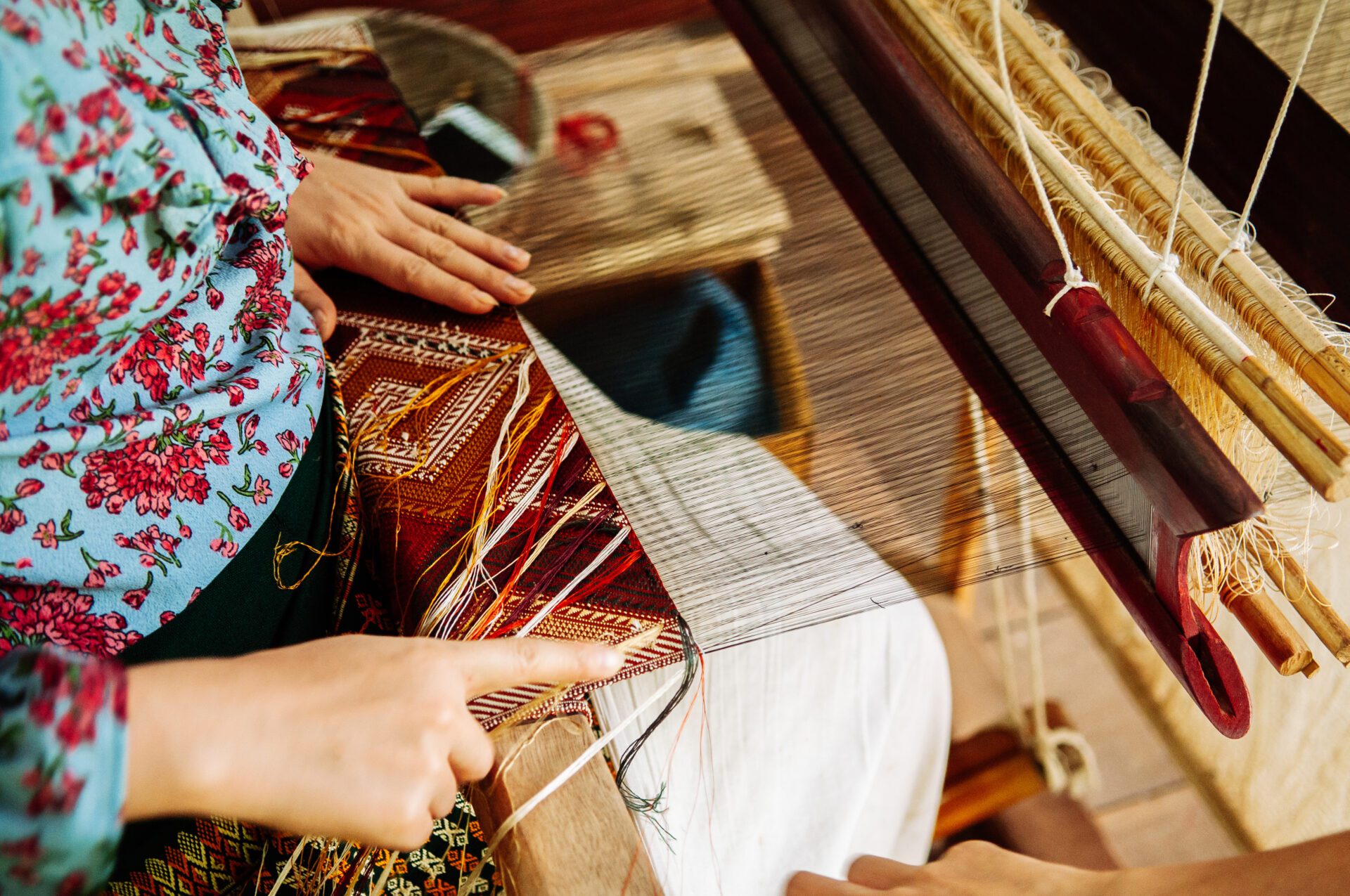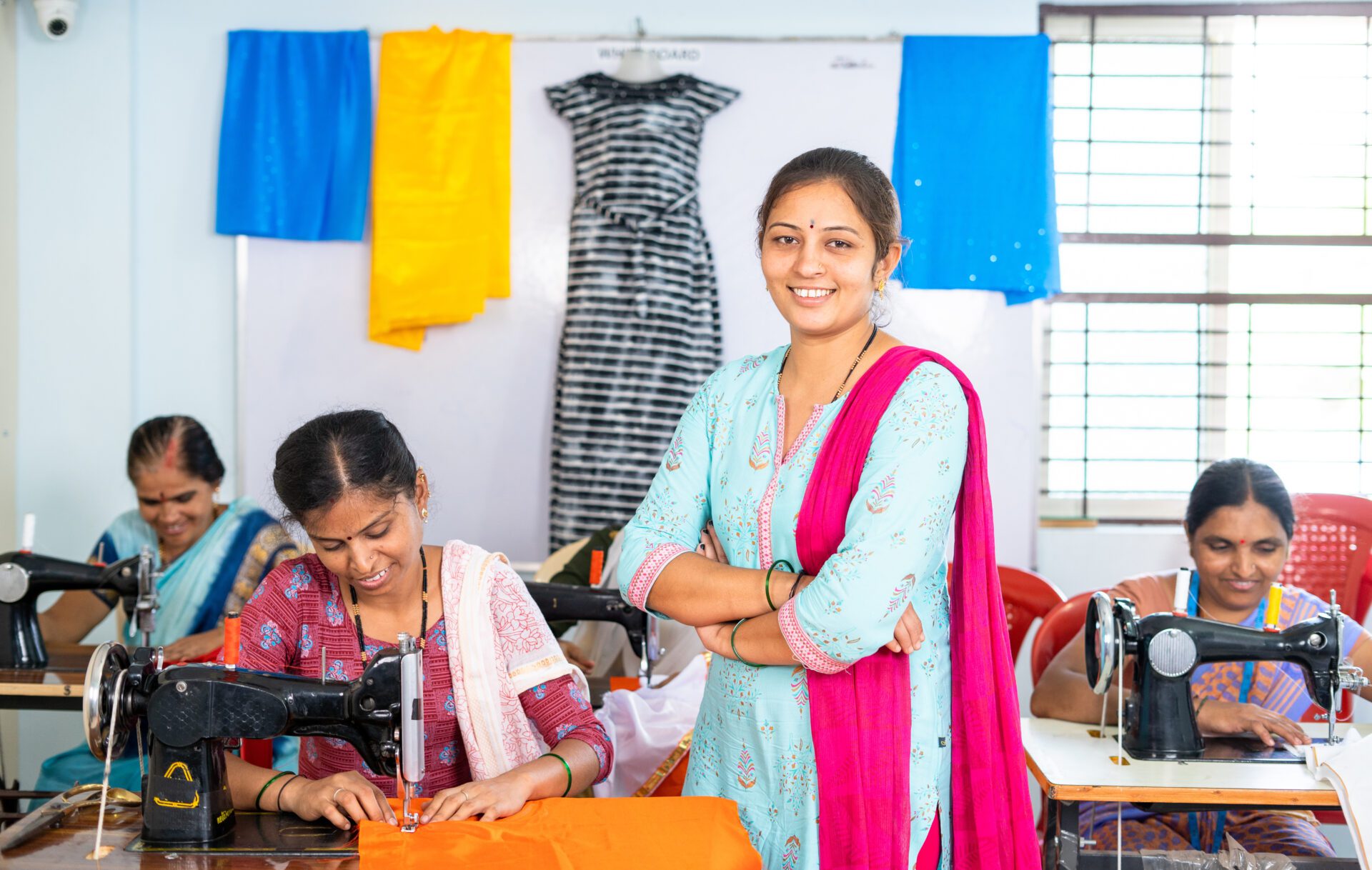The Fabric of Change
As we approach International Women’s Day 2025 under the UN theme “For ALL women and girls: Rights. Equality. Empowerment”, the fashion industry faces a reckoning. While progress has been made since the 1995 Beijing Declaration, the women of the global majority (a.k.a minorities, a.k.a women of color)—remain disproportionately undervalued, underpaid, and unseen.

Women working in the garment factories of Bangladesh and cotton fields of Burkina Faso endure systemic exploitation rooted in racialized labor hierarchies. While we celebrate iconic female designers and trailblazers like Diane von Furstenberg or Stella McCartney, there’s an invisible army of women artisans who hand-embroider saris in India and stitch luxury gowns in Italy. These unsung artists whose labor, creativity, and resilience keep the $2.5 trillion fashion industry running are the backbone of fashion.
Their stories are woven into every garment, yet their contributions are often erased by a system that undervalues “women’s work.” This International Women’s Day, we honor the artisans, factory workers, tailors, and mothers who power fashion’s engine—and demand a feminist future where their labor is not just visible but valued.
The Invisible Thread: Women of the Global Majority Behind the Scenes

1. Artisans: Keepers of Cultural Legacy, Victims of Exploitation
In Lucknow, India, Lakshmi Devi, a Dalit woman, stitches chikankari embroidery for 12 hours a day. Her work graces $2,000 luxury dresses, yet she earns $2.50 daily—less than half a living wage. Globally, 80% of artisans are women of color, many from marginalized castes or indigenous communities, trapped in cycles of poverty due to unfair pricing and cultural appropriation (UNESCO).
The Racial Pay Gap:
A 2023 Oxfam report revealed that women of color in South Asia and Sub-Saharan Africa earn 30% less than white women for comparable artisan work. Brands profit from their “exotic” craftsmanship while refusing to pay equitable rates.
Impact Initiative:
Brands like SOKO Kenya and Indigenous Designs partner with female artisans, ensuring fair wages and preserving traditional crafts. For every 1 invested in women artisans, 3 are reinvested into their families’ education and healthcare (World Bank). Organizations like Chetna Coalition in India and Mama Africa Collective in Kenya empower women of color to set their own prices and own their intellectual property. For example, Ghanaian kente weaver Ama Serwah now earns 5x more after partnering with ethical brand 54kibo, which markets her work transparently.
2. Seamstresses & Tailors: Racialized Labor in Fast Fashion’s Shadows
In Dhaka, Bangladesh, Fatima Akhter, a 24-year-old Muslim woman, sews 200 fast-fashion garments daily. Despite generating 47 billion dollars in 2024 for Bangladesh’s economy, the average garment worker only earned $104/month. Of the 32 million women of color in garment factories across Asia, Africa, and Latin America—92% earn below a living wage (Worker Rights Consortium). In Honduras, Afro-Indigenous Garifuna women face wage theft rates 40% higher than their mestizo peers (Labour Behind the Label).
Systemic Racism in Supply Chains:
A 2024 Fashion Revolution study found that brands pay factories in majority-Black and Brown countries 18% less per unit compared to Eastern European factories, despite identical order volumes. This racialized cost-cutting fuels poverty cycles.
Innovation Spotlight:
Organizations like Migrant Workers’ Rights Initiative trains women like Fatima to advocate for safer factories and fair pay. The Asia Floor Wage Alliance campaigns for regional living wages, while Labour Behind the Label, Fair Wear Foundation, and Black in Fashion Council push brands to adopt transparency and racial equity in their supply chains.
3. Mothers & Caregivers: The Unpaid Labor of Women of Color
In the Andean mountains of Peru, Rosa Quispe, an Indigenous Quechua woman, hand-spins alpaca wool into one-of-a-kind textiles. At 88 years old, her labor was always classified as “informal” leaving her without any kind of pension, while she simultaneously cared for her children and elderly parents. Her unpaid care work subsidized the “slow fashion” movement, when it should have been the other way around.
The Intersectional Burden:
Globally, women of color perform 3.2x more unpaid care work than white women (ILO). In West Africa, female cotton farmers (95% Black women) spend 6 hours daily on unpaid household labor before tending crops.
Call to Action:
Campaigns like #PayUp, founded in 2020 during COVID-19 crisis, demands brands compensate suppliers for canceled orders, protecting millions of female workers and their families. The Care Income Now campaign demands a global investment in childcare cooperatives for the $10.8 trillion care work provided by women and girls, with the largest proportion among black, brown, and indigenous mothers.
Progress Spotlight:
- The Garment Worker Center in Los Angeles, led by Latina and Asian immigrant women, won a landmark 2023 law requiring hourly wages (not piece rates) for California factories.
- Brazil’s Dandara Collective trains Black favela residents in textile skills, disrupting cycles of underpaid domestic work.
Empowering the Next Generation: Women as Catalysts

More than 60% of Gen Z only shops brands committed to sustainability. Meet the leaders of today fighting for tomorrow’s equity:
- Lexy Silverstein & Harmony Richards partner as co-community organizers at Remake, the nonprofit global organization advocating for fair pay and climate justice.
- Elizabeth Salim, based in Mexico City, is a leader in decentralized fashion tech and sustainability who uses upcycled materials to create high-end fashion designs.
- Esethu Cenga, of Capetown, focuses on sustainability in Africa and is the co-founder of Rewoven, a textile recycling startup dedicated to diverting fashion waste from landfills and creating employment opportunities across the continent.
Designable Fashion: An Ethical Innovation Partner
At Designable Fashion, we believe sustainability, along with gender & racial equity are inseparable.
We strive to empower brands to:
- Audit Supply Chains: Identify gaps in fair wages, safety, and representation.
- Amplify Artisan Partnerships: Connect with female-led cooperatives for exclusive collections.
- Leverage Youth Insights: Integrate Gen-Z perspectives into design and marketing.
Celebrating Change, Unraveling Oppression, & Weaving Justice
Let’s confront fashion’s open secret: its reliance on the underpaid labor of women of the global majority. This International Women’s Day, we want more than performative allyship. Instead we highlight the call for investment in the Lakshmis, Fatimas, and Rosas—the women whose hands stitch our clothes and the Esethus of the world who fight for innovations to stitch our collective future.
